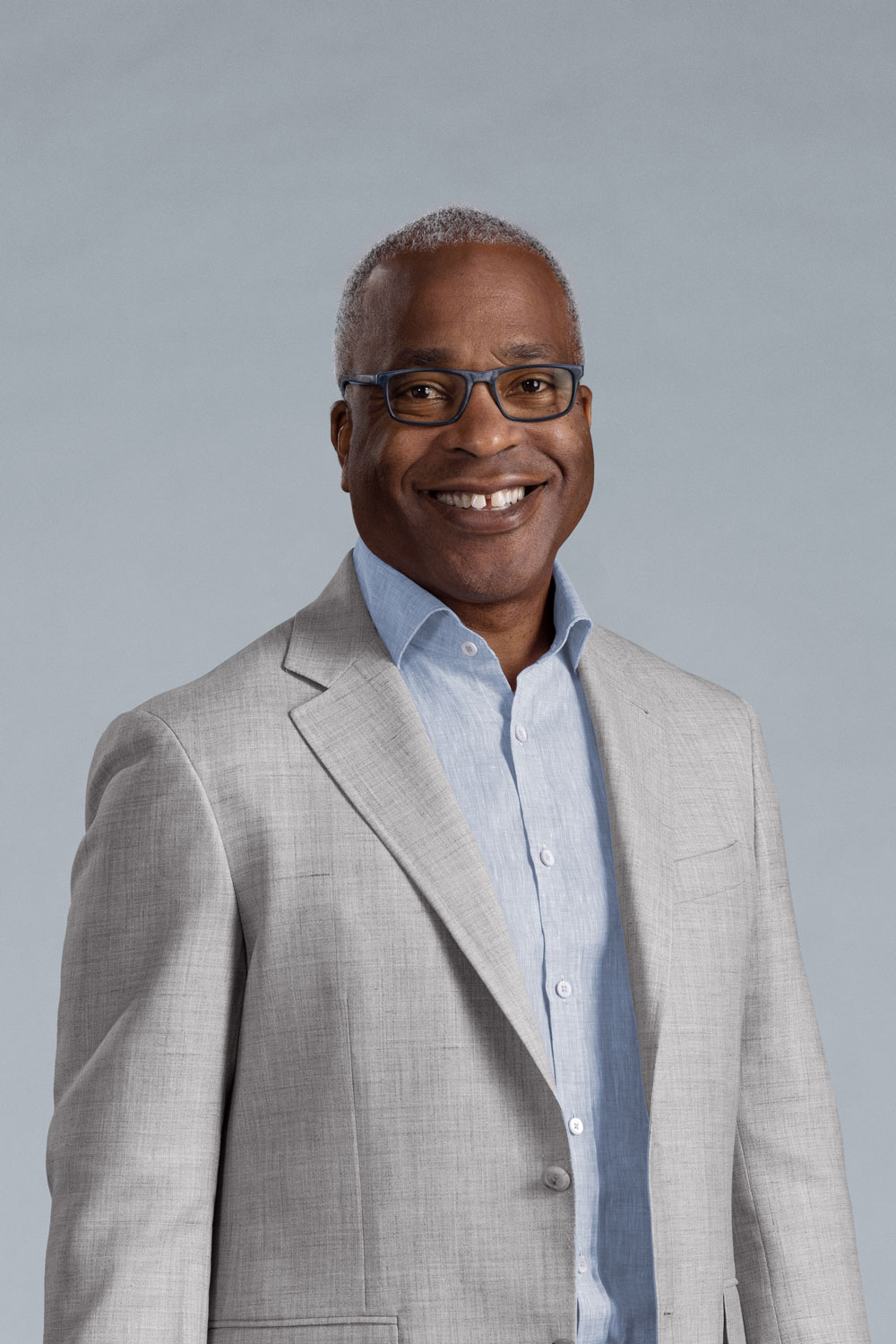How the changing tides of corporate culture (and the way the world works now) has caused us to re-evaluate how we compile the 100 Best Companies list—and why there’s a new company at No. 1.
Each year, we at Great Place To Work survey millions of employees in more than 50 countries to glean their insights on what makes them love the work they do, and to learn how their employers have created an exemplary work environment. We also conduct a culture audit to review each company’s benefits and people programs, such as health insurance, training and development, compensation, paid time off, retirement plans, and philanthropic efforts. For a company to be one of the best, we ensure that it must be a Great Place To Work for All—that every demographic group in an organization has consistently high scores on our survey.
Since 1998, we’ve partnered with Fortune to compile its annual list of the 100 Best Companies to Work For. Over the past two decades, this has amounted to a trove of data on what employees experience when their company is a Great Place To Work for All—and how leaders can build one. We have learned great workplaces are not created through a particular set of benefits that are unique to a particular industry, limited to public or private organizations, or the advantages of large or small organizations. Instead, universally, a Great Place To Work for All is one where employees trust the people they work with, have pride in the work they do, and enjoy the people they work with.
When we started our research more than 20 years ago, our goal was to understand and celebrate what type of work experience was considered “great” by employees. In the process of that analysis, we discovered something even more powerful. The same qualities employees report make a great workplace—trust, pride, and camaraderie—also fuel business performance. Our research shows that the publicly-held companies that appear on Fortune’s 100 Best Companies list have delivered stock market returns two to three times greater than major stock indices. Compared to their competitors, great workplaces win when it comes to revenue growth, employee retention, productivity, innovation, resilience, agility, customer service, employee engagement, and more.
Our New Methodology
Until now, our methodology has remained relatively unchanged, but this formula of only focusing on trust, pride, and camaraderie doesn’t work anymore. The way we do business—and work—has changed. And we realized that we needed to re-discover the magic—how each Great Place To Work For All uses its organizational culture as a key ingredient for success. So for this year’s ranking, we’ve added a few new metrics to help us take a more accurate reading of how a company’s great workplace culture translates to its growth and corporate excellence.
Some business basics remain as true today as they have for decades. A successful company must have a sound business model, a smart strategy, and savvy financial management. But these fundamentals of a business school education are no longer sufficient. Business leaders’ paths to success are quickly evolving. Changes happen faster, information moves rapidly with more transparency than ever before, and technology gives any customer or employee the power to be heard worldwide in an instant. These are the unique challenges of our times. And the best leaders are responding.
So what’s needed to succeed in the new business frontier? A Great Place To Work For All has six components we now measure: Values, Innovation, Financial Growth, Leadership Effectiveness, Maximizing Human Potential, and Trust. The key to business success is maximizing human potential, accomplished through leadership effectiveness, values, and trust. Get those pieces right, and you will see innovation and financial growth. To determine the rankings for this year’s list of Fortune’s 100 Best Companies to Work For, we scored each company on these six components after reviewing their employee surveys and culture audit.
Central to our new approach is Maximizing Human Potential: we now assess how well companies create a consistently positive experience for all employees, no matter who they are or what they do for the organization. We did this to reflect the reality of the world today, and to recognize and learn from the inclusive organizations that are setting the pace. Not just for moral reasons, but for business reasons. Our most recent research shows companies that rate most highly according to our new “For All” standard grow revenue three times faster than their less-inclusive rivals. In other words, while trust fuels business performance at great workplaces, “For All” accelerates it.
In a separate study, we found the organizations scoring highest using our new “For All” methodology grew their revenue about 10 percent faster over the same period than the companies that scored best according to our old methodology, which simply measured average levels of Trust, Pride, and Camaraderie. It makes sense that “For All” organizations race ahead. Because now, business success relies on developing all your human potential. Every employee matters in an economy that is about connectivity, innovation, and human qualities like passion, character, and collaboration. The upshot is, in the emerging economy, the Best Workplaces can do better–much better. And they must. They have to work in new ways and with new behaviors to create an outstanding culture for everyone, no matter who they are or what they do for the organization. The same is true for all organizations. To survive and thrive in the future, organizations have to build Great Places to Work For All.
A New No. 1
Applying this new “For All” methodology to Fortune’s 100 Best Companies list has produced somewhat different results in the rankings. For the first time in 7 years, there’s a new No. 1. Salesforce tops this year’s list, thanks to its efforts to create a Great Place To Work For All, its commitment to philanthropy (employees get paid 56 hours per year to volunteer, for example), and for creating a globally-cohesive culture (in addition to this list, it also ranks on each of our national best workplaces lists in Australia, India, Ireland, Japan, Singapore, and the U.K.)
“The intersection of our values — trust, growth, innovation, and equality — and our actions creates our Ohana culture," said Marc Benioff, Chairman and CEO, Salesforce. "This culture of family is at the core of everything we do — including our philanthropy, spaces, events, products and Trailhead, our online learning platform." For more on Salesforce, see thier Profile on the Great Place To Work Review's site.
The best example of "For All" leadership among our list companies was demonstrated at Workday (No. 7 on this year's list) by co-founder & CEO Aneel Bhusri, who asked us to query our global database to establish a benchmark based on the top 10 percent of the best leaders in the world using our new methodology. Rather than a relative internal ranking, he used this extremely high bar to assess his leaders and then he gave awards to those who surpassed this Olympic-like benchmark. Most amazing was the response of the leaders in the room who did not receive an award: They gave the recognized leaders an impromptu standing ovation. Now that’s a Great Place To Work for All.
The Cultural Tides Are Turning
Thanks to social media, more people of diverse backgrounds are speaking up and being heard. The millennial generation, which represents the largest segment of the U.S. workforce, expects their employers to provide purpose, balance, and career development. Female employees, as well as those from different racial and ethnic groups, are also speaking up, sharing workplace injustices, and demanding equality. The #MeToo movement has shined a spotlight on companies’ failed HR policies, resulting in immediate changes, and the call for pay equality gets stronger and louder every day as more women demand fairness.
All these changes mean companies must clear a higher bar in creating cultures that are welcoming to everyone. Our research, for example, shows female employees who don’t feel they can have honest conversations with leaders have a lower overall workplace experience, and are more likely to jump ship. And, on the flip side, among millennial employees, those who experience their company as a great workplace are 20 times more likely to plan a long-term future there than those who do not.
Also this past year, the CEO Action for Diversity & Inclusion was collectively formed and is led by a steering committee of CEOs and leaders from Accenture, BCG, Deloitte US, The Executive Leadership Council, EY, General Atlantic, KPMG, New York Life, P&G and PwC. We’d like to applaud the steering committee’s 100 Best CEO’s: Tim Ryan, US Chairman & Senior Partner, PwC; Julie Sweet, Chief Executive Officer, North America, Accenture; Cathy Engelbert, Chief Executive Officer, Deloitte; Joe Davis, Chairman, North America, The Boston Consulting Group; Stephen Howe, JR. US Chairman and Americas Managing Partner, EY; and Lynne Doughtie, U.S. Chairman & Chief Executive Officer, KPMG LLP.
It should come as no surprise that the winners of Fortune’s 100 Best Companies list are leading the march toward workplace equality. As such, we will be honoring their top women leaders at the annual Great Place To Work For All Summit in San Francisco from March 7 to 9, 2018. The honorees will include Joanne Smith, the Chief Human Resources Officer for Delta Air Lines (No. 98 on this year’s list), for helping the airline to build a more inclusive workplace by pushing it to commit to the White House Equal Pay Pledge, which encourages U.S. companies to take action to advance equal pay among men and women. Monica Singh, Vice President and General Manager of Sales and Marketing at American Express (No. 23), will be rewarded for achieving record business results while being recognized as best in class for her group’s employee experience, and Stephanie Linnartz, Chief Commercial Officer at Marriott International (No. 35) will be recognized for overseeing the transformation of the hospitality company’s marketing, digital technology, and brand management divisions. Join us and the editors of Fortune as we recognize dozens of women leaders of the 100 Best Companies.
The CEO as Social Activist
More and more, we’re seeing business leaders take a stance on social and political issues. Thanks to the aforementioned socially-aware millennial workforce, today’s CEOs realize the importance of having a voice, especially in an age in which many government leaders have squandered their moral authority and public trust in corporate America is low. And in this very competitive labor market, leaders need to show that their companies are good global citizens as a means to attract the best talent.
The adage that “change begins from the top” isn’t entirely true. Even if you’re not a business leader, you can still take an active part in a cultural transformation. Whether you’re a CEO, a mid-level manager, or an hourly employee, we invite you to help make your company a great workplace for everyone. We’re so convinced that it’s better for business, better for people, and better for the world that we’ve even updated our mission: to build a better world by helping organizations become Great Places to Work For All. And we’ve set a deadline for achieving it: we want every organization across the globe to be a Great Place To Work For All by 2030. Join us in our mission. No matter what spurs you on, the way forward is the same.




